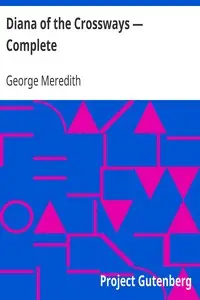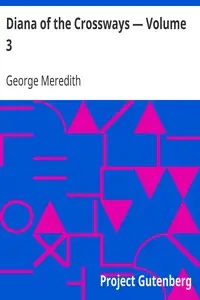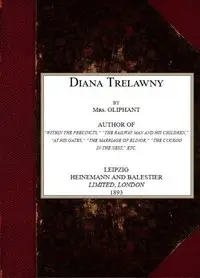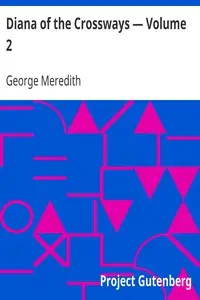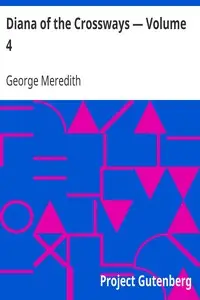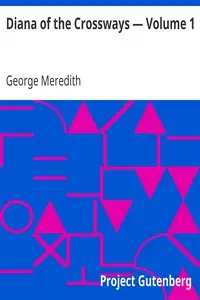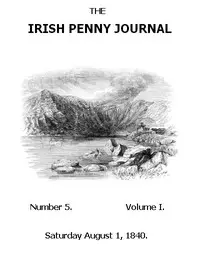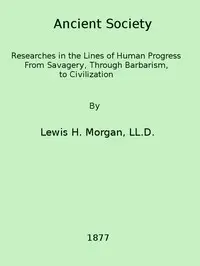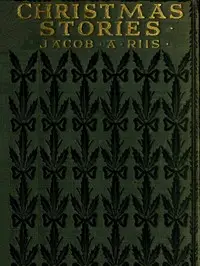** "Diana of the Crossways — Volume 5" by George Meredith is a story set in the late 1800s, revealing a world of captivating social circles and heartfelt relationships. The story revolves around Diana Warwick, a smart and spirited woman trying to find her way through complicated romances and the limiting rules of society. The story begins by showing the exciting and dramatic events that shape everyone's lives, like the buzz around a young politician marrying a rich woman. One of Diana's friends, Lady Dunstane, becomes very upset after hearing of an accident, suggesting that love and loss are connected. Throughout the story, characters discuss important ideas like loyalty, how society judges people, and the difficulties women face, painting a picture of how Diana grows and changes within her world. **
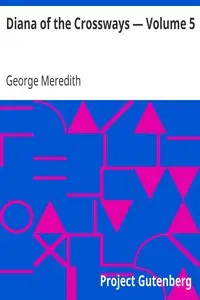
Diana of the Crossways — Volume 5
By George Meredith
** In a world of societal expectations and high emotions, a brilliant woman navigates love, loss, and the complexities of personal freedom.
Summary
About the AuthorGeorge Meredith was an English novelist and poet of the Victorian era. At first, his focus was poetry, influenced by John Keats among others, but Meredith gradually established a reputation as a novelist. The Ordeal of Richard Feverel (1859) briefly scandalised Victorian literary circles. Of his later novels, the most enduring is The Egoist (1879), though in his lifetime his greatest success was Diana of the Crossways (1885). His novels were innovative in their attention to characters' psychology, and also portrayed social change. His style, in both poetry and prose, was noted for its syntactic complexity; Oscar Wilde likened it to "chaos illumined by brilliant flashes of lightning". Meredith was an encourager of other novelists, as well as an influence on them; among those to benefit were Robert Louis Stevenson and George Gissing. Meredith was nominated for the Nobel Prize in Literature seven times.
George Meredith was an English novelist and poet of the Victorian era. At first, his focus was poetry, influenced by John Keats among others, but Meredith gradually established a reputation as a novelist. The Ordeal of Richard Feverel (1859) briefly scandalised Victorian literary circles. Of his later novels, the most enduring is The Egoist (1879), though in his lifetime his greatest success was Diana of the Crossways (1885). His novels were innovative in their attention to characters' psychology, and also portrayed social change. His style, in both poetry and prose, was noted for its syntactic complexity; Oscar Wilde likened it to "chaos illumined by brilliant flashes of lightning". Meredith was an encourager of other novelists, as well as an influence on them; among those to benefit were Robert Louis Stevenson and George Gissing. Meredith was nominated for the Nobel Prize in Literature seven times.

